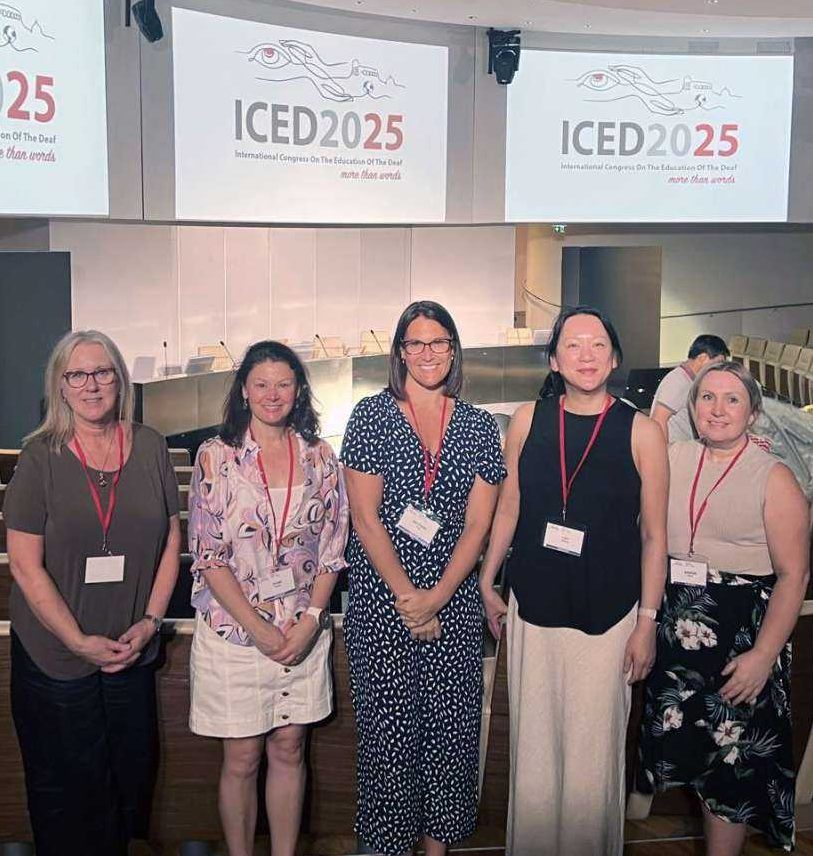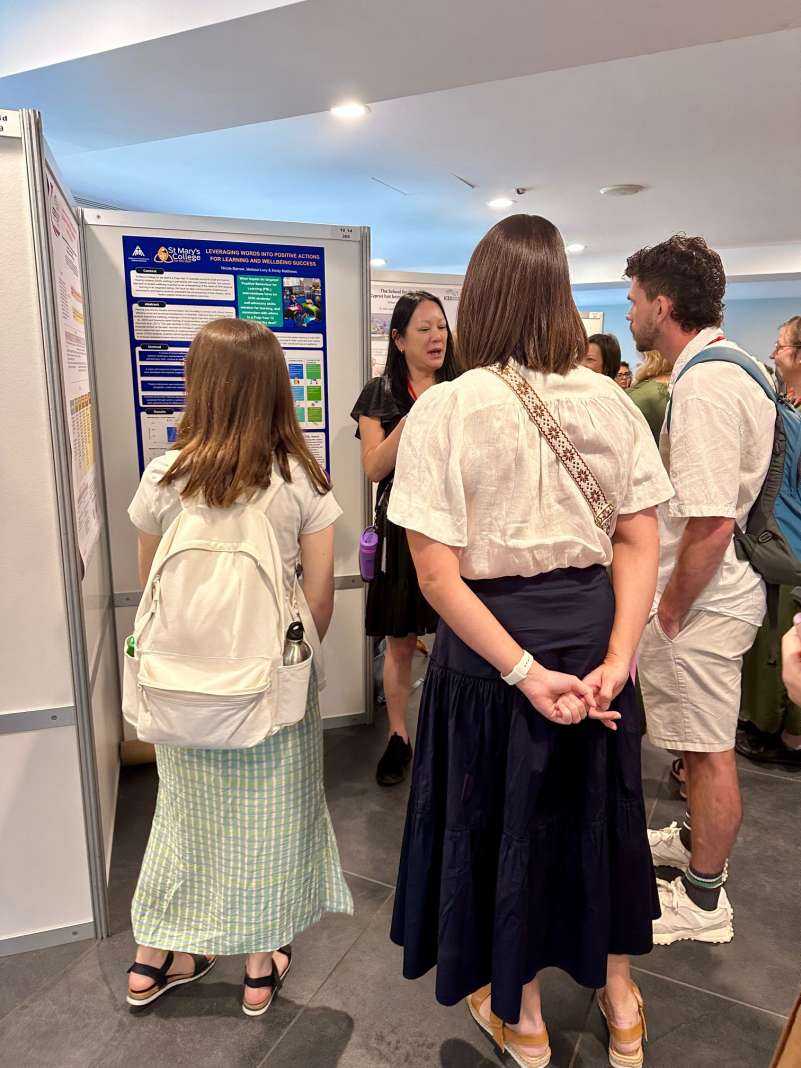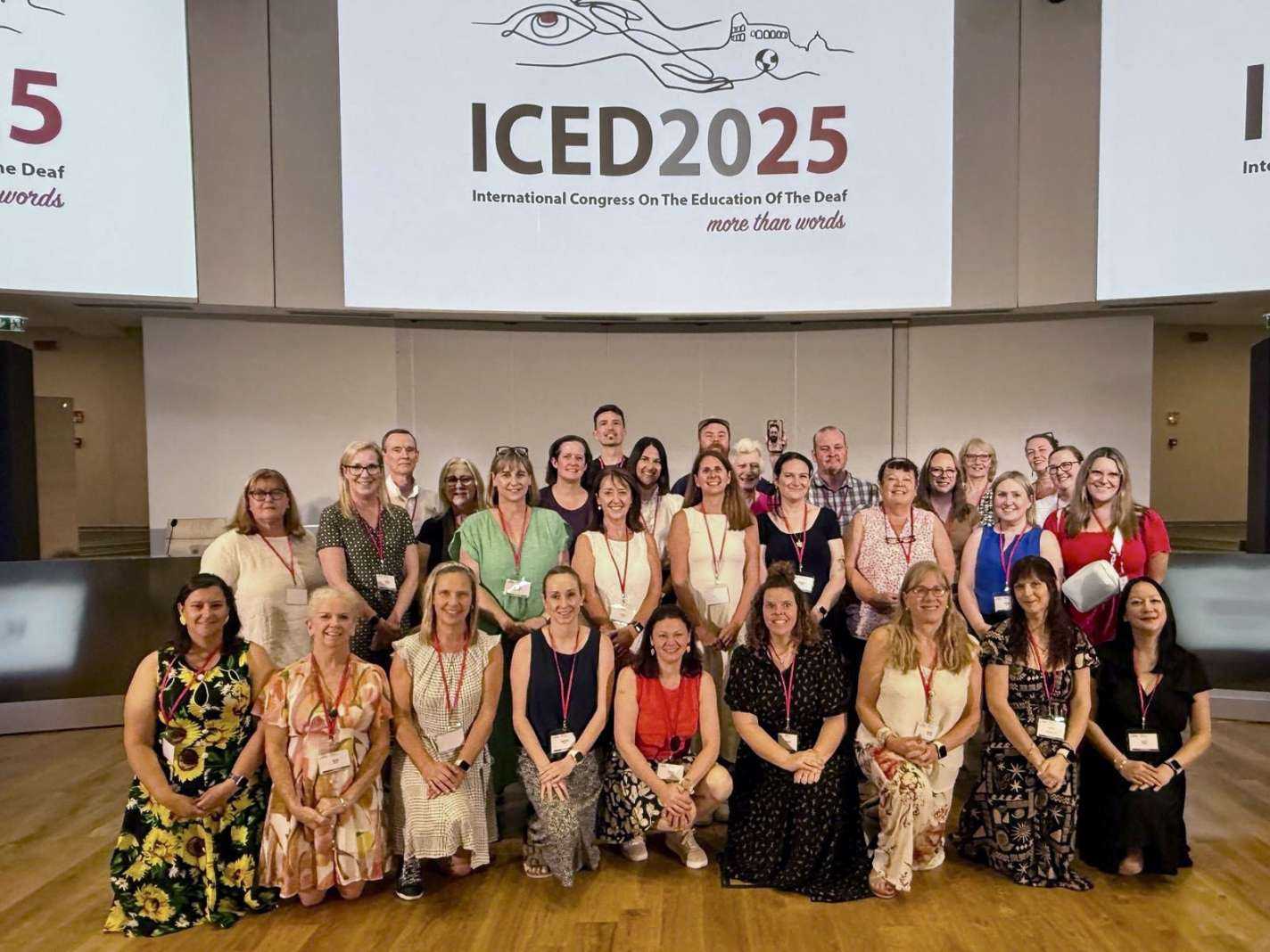
Leveraging Words into Positive Actions for Academic and Wellbeing Success
St Mary’s College for the deaf was honoured to be selected to present at the International Congress on Education of the Deaf 2025 in Rome, Italy. This is a global conference where educators, researchers, and leaders in Deaf Education come together to share best practices. At this event, our wellbeing team presented how we support our Deaf and Hard of Hearing students to build confidence, connection, and a positive mindset for learning.
Our school has implemented a Positive Behaviour for Learning framework, which is an evidence-based approach grounded in positive psychology. After analysing our school data, we recognised the need for targeted interventions to better support Deaf and Hard of Hearing students from Prep to Year 12. In response, we created and shared tailored lessons, which our Teachers of the Deaf then taught using these in class with the students. These lessons aimed to strengthen students' self-advocacy skills, foster a growth mindset and build stronger connections with others. Following the implementation of lessons, most year levels showed a positive increase in wellbeing outcomes. We will continue looking at the social and emotional needs of Deaf and Hard of Hearing students to make sure our interventions target behaviours that might otherwise be missed.
The conference was also an opportunity to hear from leading professionals who shared the latest research in deaf education.
Presenters highlighted that AI is now being used to replace human captionists, while studies from the USA show that deaf and hard of hearing (DHH) workers in STEM fields can earn more, face less unemployment, and have greater career opportunities. Research also confirmed that DHH learners can achieve as well or better than hearing learners online, though challenges such as fatigue and inconsistent captioning remain.
Early diagnosis was shown to be critical, as delays beyond three months can impact language development and reading comprehension. Findings also reinforced the benefits of bilingual education, with students taught using both sign and oral language performing better in mainstream settings. The visibility of deaf role models, the supportive use of interpreters, and families learning sign language were also identified as key factors in student success.
Finally, the conference reminded us that fatigue for deaf students is not just about listening, but also includes cognitive, physical and social-emotional aspects—highlighting the importance of strong wellbeing support in schools.




